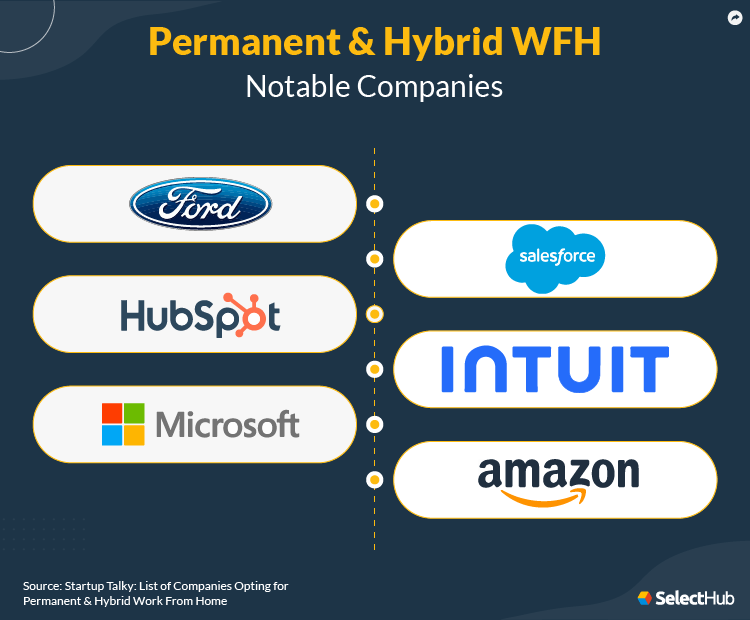7 HR Management and Recruiting Trends for Executives (2024 and Beyond)
Today, trends in human resource management are shaped by the rapid rise of new technologies and shifting workplace dynamics. Companies today are not just seeking ways to attract talent but to create environments that retain and nurture their workforce.
HR recruiting trends show that strategies must now balance efficiency with a human touch while workforce management adapts to meet the changing needs of employees. This evolving landscape requires businesses to be informed of the latest HR trends. The path forward will demand innovation, adaptability, and a focus on building resilient, engaged teams that can drive the company forward.
7 Key HR Recruiting and Workforce Management Trends
Emerging trends will help you recruit, engage, and retain top talent effectively. Build a dynamic and future-ready workforce with these HR management trends and recruiting strategies in 2024 and beyond.
1. AI and predictive analytics in recruitment
AI-driven tools and predictive analytics are transforming how businesses manage recruitment, streamlining the hiring process and helping identify top candidates based on specific skills. These technologies enable companies to enhance HR recruiting efforts by reducing bias and making data-driven decisions in talent evaluation.
Predictive analytics is particularly valuable for workforce planning, allowing businesses to forecast future hiring needs and adjust recruitment strategies accordingly. It also aids in identifying potential retention risks and optimizing talent management. HR leaders can make proactive decisions by analyzing past performance, market trends, and employee sentiment to align recruitment strategies with business growth goals.

According to recent data, 71% of HR executives who utilize people analytics consider it crucial to their HR strategy, offering insights into employee engagement, long-term workforce planning, and future human resources trends.
Additionally, AI-driven platforms improve candidate experiences by automating communication and feedback, helping HR teams engage potential hires faster. This technology enhances HR staffing efforts but also builds a more competitive recruitment process, which is necessary in today’s fast-paced talent market.
2. Skills-based hiring for more agile teams
As work demands evolve, many companies are adopting skills-based hiring practices, focusing on technical and soft skills rather than traditional degrees. This approach allows businesses to target competencies that directly align with job performance, creating more agile and adaptable teams. Skills-based hiring also supports internal talent mobility, helping companies fill gaps by reskilling current HR talent.
AI and analytics are increasingly used to evaluate skills over formal qualifications, providing a more accurate assessment of candidates’ capabilities. This shift allows companies to hire candidates who might not fit traditional models but bring valuable expertise to the table.

Businesses are now using assessments to measure emotional intelligence, adaptability, and problem-solving skills alongside technical knowledge, providing a more well-rounded view of each candidate.
Furthermore, skills-based hiring promotes diversity and inclusion by reducing bias tied to educational background or career trajectory. Companies can increase access to underrepresented talent pools, aligning with broader diversity and equity goals. This type of hiring also enables companies to better meet their evolving workforce needs. These resilient, diverse teams can adapt quickly to changes in the business environment.
3. Upskilling and reskilling for retention
Companies are increasingly investing in upskilling and reskilling their workforce to retain top talent and prepare for future challenges. By offering employees the opportunity to develop new skills or transition into different roles, businesses can reduce turnover and foster loyalty. Upskilling programs also help close skill gaps, ensuring employees stay competitive in a rapidly changing landscape.
For example, PwC invested $1 billion in upskilling its workforce on AI-related skills, with the goal of future-proofing employees against technological advancements. These programs help improve job satisfaction and drive engagement as employees see clear paths for career growth within the company.

Upskilling initiatives that focus on both technical and soft skills enable employees to move vertically or horizontally within the organization, giving businesses the agility to adapt to shifting demands and future HR trends.
However, these programs must be designed carefully to avoid overwhelming employees with additional responsibilities that could lead to burnout. Offering flexibility in training options, such as self-paced learning or hybrid formats, can help balance development with day-to-day workloads. Ensuring that employees feel supported in their growth contributes to a more engaged, motivated workforce.
4. Hybrid work models and remote hiring practices
Hybrid work models continue to be a major trend in HR, offering flexibility that appeals to today’s workforce. With remote work becoming the norm for many, businesses have expanded their recruitment efforts beyond local talent pools, improving their HR staffing of top candidates regardless of geographic location.
Remote and hybrid work policies have shown clear benefits, including improved employee retention and faster revenue growth compared to companies with rigid office attendance requirements.

Source: SelectHub
Companies like Ford and Microsoft have successfully implemented flexible working arrangements. These models help enhance employee satisfaction by promoting work-life integration and reducing overhead costs associated with maintaining large office spaces. Companies that embrace hybrid work find themselves better positioned to attract and retain a broader talent base, ultimately boosting their competitiveness.
However, HR leaders must address challenges such as proximity bias—where remote employees might be overlooked for promotions or career development opportunities. To ensure fairness, companies need to implement strategies that offer equal access to mentorship, training, and growth, regardless of an employee’s location.
5. Employee well-being and mental health initiatives
As concerns over burnout and mental health rise, companies are increasingly prioritizing employee well-being as a key aspect of their HR workforce management strategies. Addressing mental health through flexible work arrangements, wellness programs, and mental health support will help maintain high levels of engagement and retention.
Studies show that 76% of employees experience workplace burnout at some point, which can lead to higher absenteeism, turnover, and decreased productivity.

Businesses that invest in employee well-being often see improved business outcomes, including better overall performance. Mental health initiatives, such as access to telehealth services, flexible work schedules, and wellness incentives, are becoming more common in the corporate world as companies recognize the direct link between well-being and productivity.
Additionally, providing employees with autonomy in their work schedules, especially in hybrid or remote work environments, can significantly reduce stress and improve work-life integration. Companies that successfully promote a healthy work culture will likely see higher engagement and lower turnover rates, positioning themselves as attractive employers in a competitive talent market.
6. Diversity, equity, and inclusion (DEI) as a strategic imperative
Diversity, equity, and inclusion (DEI) have become integral to HR strategies as businesses recognize the value of creating inclusive workplaces that attract a broader range of talent. Companies that prioritize DEI initiatives not only foster innovation but also improve retention and employee engagement by creating a culture of belonging.
The global DEI market is expected to reach $15.4 billion by 2026, reflecting the increasing investment in DEI programs as a strategic priority for businesses. Companies are using DEI metrics to assess inclusion and equity across their workforce, tracking hiring practices, promotions, and employee engagement to ensure fair opportunities for all employees.

Employee resource groups (ERGs) play a key role in fostering inclusion within the workplace, providing safe spaces for underrepresented employees to share their experiences and advocate for positive change. These initiatives contribute to building a more diverse leadership pipeline, ensuring that organizations can tap into a wider pool of talent for key roles.
7. Internal talent marketplaces for career mobility
Internal talent marketplaces are growing in popularity as businesses seek to maximize the potential of their existing workforce. These platforms enable employees to explore new roles, projects, or development opportunities within the organization, reducing the need for external hiring while promoting career growth.
Internal talent marketplaces support career mobility by matching employees with opportunities that align with their skills and career aspirations. Companies like KeyBank have implemented AI-powered platforms that allow employees to access mentoring, stretch assignments, and leadership roles, with a 60% increase in employee engagement reported.
Focusing on internal talent development allows you to reduce hiring costs while retaining top talent who might otherwise seek opportunities elsewhere.
Building the Foundation for HR Success
Businesses will continuously face new challenges and opportunities in HR management and recruiting. Traditional HR practices will no longer suffice, and embracing future HR recruiting trends will help you build a more resilient, adaptable workforce. This approach ensures that you remain competitive and continue to attract and retain top talent in the years ahead.

As the workplace continues to shift, the most successful organizations will be those that combine innovation with a commitment to the growth and well-being of their teams.
Partner with expert recruiters to stay ahead in this evolving landscape. Recruiting Connection, one of the leading professional recruiters in Salt Lake City, specializes in providing tailored HR solutions to meet the specific needs of businesses.
Whether you require the expertise of an HR recruitment company or need the services of experienced executive recruiters, we’ll offer comprehensive support to help you build a dynamic workforce. Reach out today to learn how we can enhance your talent strategies and ensure long-term success!

Struggling to find top
talent for your business?
Connect with the expertes at Recruiting Connection and discover the difference our full-service recruitment can make.
Contact Us Today
















